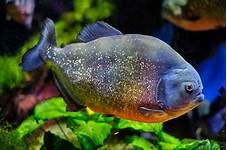When you bring a pet duck into your home, you're taking on a long-term commitment. Ducks can live for quite a long time, so it's important to be prepared for the responsibility of caring for them for their entire lives.

Lifespan of Pet Ducks
The average lifespan of a pet duck is 8 to 12 years. However, some ducks may live for as long as 20 years, while others may only live for 5 or 6 years. The lifespan of a pet duck depends on a number of factors, including:
- The breed of duck
- The duck's overall health
- The duck's diet
- The duck's living environment
- The duck's access to veterinary care
Factors That Affect a Duck's Lifespan
There are a number of factors that can affect a duck's lifespan. These include:
Breed: Some breeds of ducks are more prone to certain health problems than others. For example, Pekin ducks are more prone to obesity and heart disease, while Khaki Campbell ducks are more prone to egg-laying problems.
Overall health: A duck's overall health is a major factor in its lifespan. Ducks that are sick or injured are more likely to die prematurely.
Diet: A duck's diet plays a role in its lifespan. Ducks that are fed a healthy diet are more likely to live longer than ducks that are fed a diet that is high in fat and sugar.
Living environment: A duck's living environment can also affect its lifespan. Ducks that live in a clean, safe environment are more likely to live longer than ducks that live in a dirty, unsafe environment.
Access to veterinary care: Access to veterinary care is essential for a duck's long-term health. Ducks that have access to regular veterinary care are more likely to live longer than ducks that do not.
How to Increase Your Duck's Lifespan
There are a number of things you can do to increase your duck's lifespan. These include:
Choose a healthy breed: When choosing a pet duck, select a breed that is known for being healthy and hardy.
Feed your duck a healthy diet: Feed your duck a diet that is high in protein and low in fat and sugar.
Provide your duck with a clean, safe environment: Make sure your duck's living environment is clean and free of hazards.
Take your duck to the veterinarian for regular checkups: Take your duck to the veterinarian for regular checkups so that any health problems can be detected and treated early.
Declaration: All article resources on this website, unless otherwise specified or labeled, are collected from online resources. If the content on this website infringes on the legitimate rights and interests of the original author, you can contact this website to delete it.






